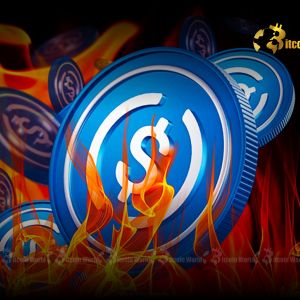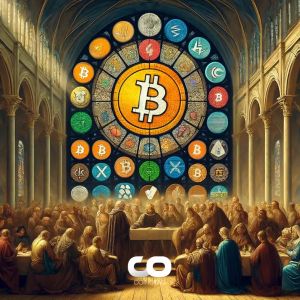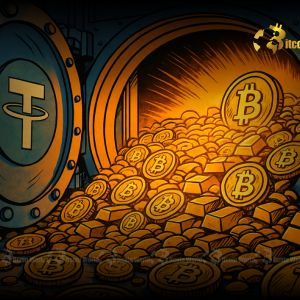An early BTC owner that bought a gold bar carrying a BTC private key finally moved the coins to new addresses, after holding it for 13 years. Unfortunately, he lost the forked coins after posting the private key on the Bitcointalk forum. An owner of a Casascius gold bar containing a BTC private seed finally unsealed the private key and moved the coins to new wallets. The storage solution, which was sold over a decade ago, became too valuable to hold in a single place, hence the decision to split 100 BTC into different addresses. The gold bar, which was acquired for $500 in 2012, was unsealed, exposing the mini-key on the Bitcointalk forum. | Source: Bitcointalk . Soon after the bar was unsealed, the redeemed BTC remained in new wallets, and the bar’s owner did not cash out. The bar was redeemed when BTC prices were above $106,000, with the owner basing his decision on the extremely high value of a single gold-plated bar. The bar’s owner posted the path to unsealing the gold bar’s mini-key hologram, then accessing the coins through new wallets. The owner acquired the gold bar for $500 in 2012, holding for years as its value climbed. Gold bars and coins containing a BTC private key have been swapped and traded throughout the years. An early user sold a gold bar for $26,000 in 2013, at a time when bars were a novelty and some resold at a premium of 125 BTC. The latest auction for a Casascius coin was from 2022, when the value of the hidden wallets was more appreciated. The latest redeemed bar was also seen as a valuable novelty item, as the owner considers an auction for the physical item. Casascius gold bars protect their BTC keys In theory, the gold bars that have not been tampered with should protect the private seed for years. The mini-seed also proved compatible with existing wallets, as the user also created new addresses to move the coins. Based on the Casascius record , only 35 unopened 100-BTC bars remain. Unopened coins and bars now hold more than $3.9B based on current BTC value. The user had to take extra steps to redeem the coins, by using a tool to convert a mini seed to its full version and a user-friendly QR code. Redeeming the bar through several addresses was also seen as the more secure path than selling the bar unsealed. Owning physical wallets or coins holding a private seed runs into the risk of attempted theft or loss, especially at a time when even Ledger owners have faced kidnapping attempts . A Bitcoin bar or coin is not protected in any way, and anyone that views the private seed can extract the coins. Bar owner loses all forked coins Since the gold bar wallet was generated early, before the Bitcoin Cash and BSV hard forks, the owner was eligible to also claim those coins. The gold bar was redeemed and split into 10 new addresses, due to the dangers of selling the entire physical gold-plated bar. | Source: BTC mempool . Unfortunately, the bar’s holder posted the mini-seed on the forum, before claiming the forked coins. Someone immediately sent out 100 BCH valued at over $50K, while also gaining access to smaller forks. Later, the user Nexusrushrush admitted to taking the BCH, but returned them to the original wallet, which was already compromised, and open for someone else to sweep. No new offers were made to the gold bar’s owner to return forked coins. There are also two known bars in existence with 1,000 BTC on them. As of 2020, both remained unclaimed. The items containing private keys stopped selling in 2013, only reselling as novelty items. Currently, Ebay mostly carries offers for funded and unfunded coins, with the physical gold bar becoming a rarity even if redeemed. Cryptopolitan Academy: Want to grow your money in 2025? Learn how to do it with DeFi in our upcoming webclass. Save Your Spot


















